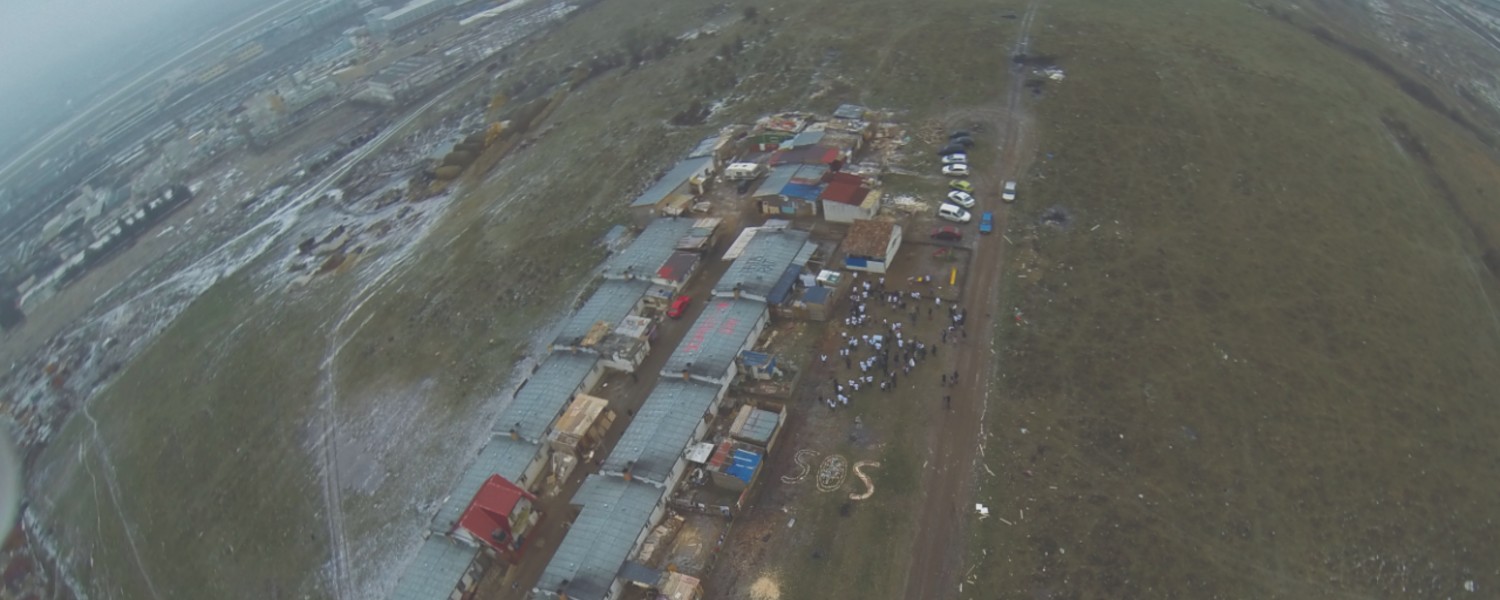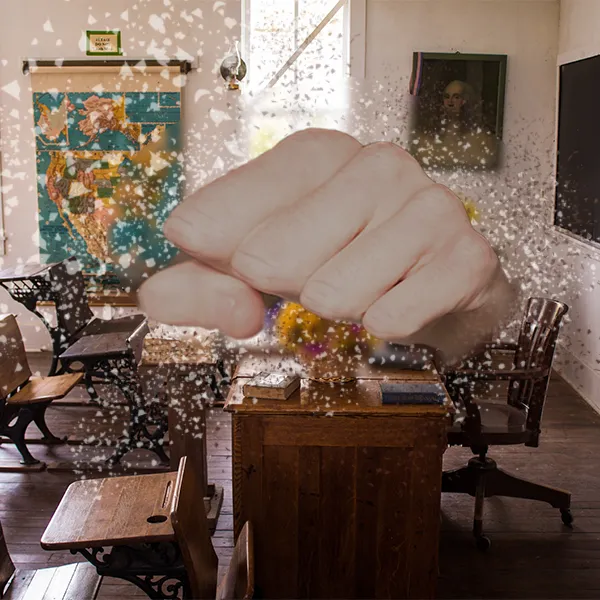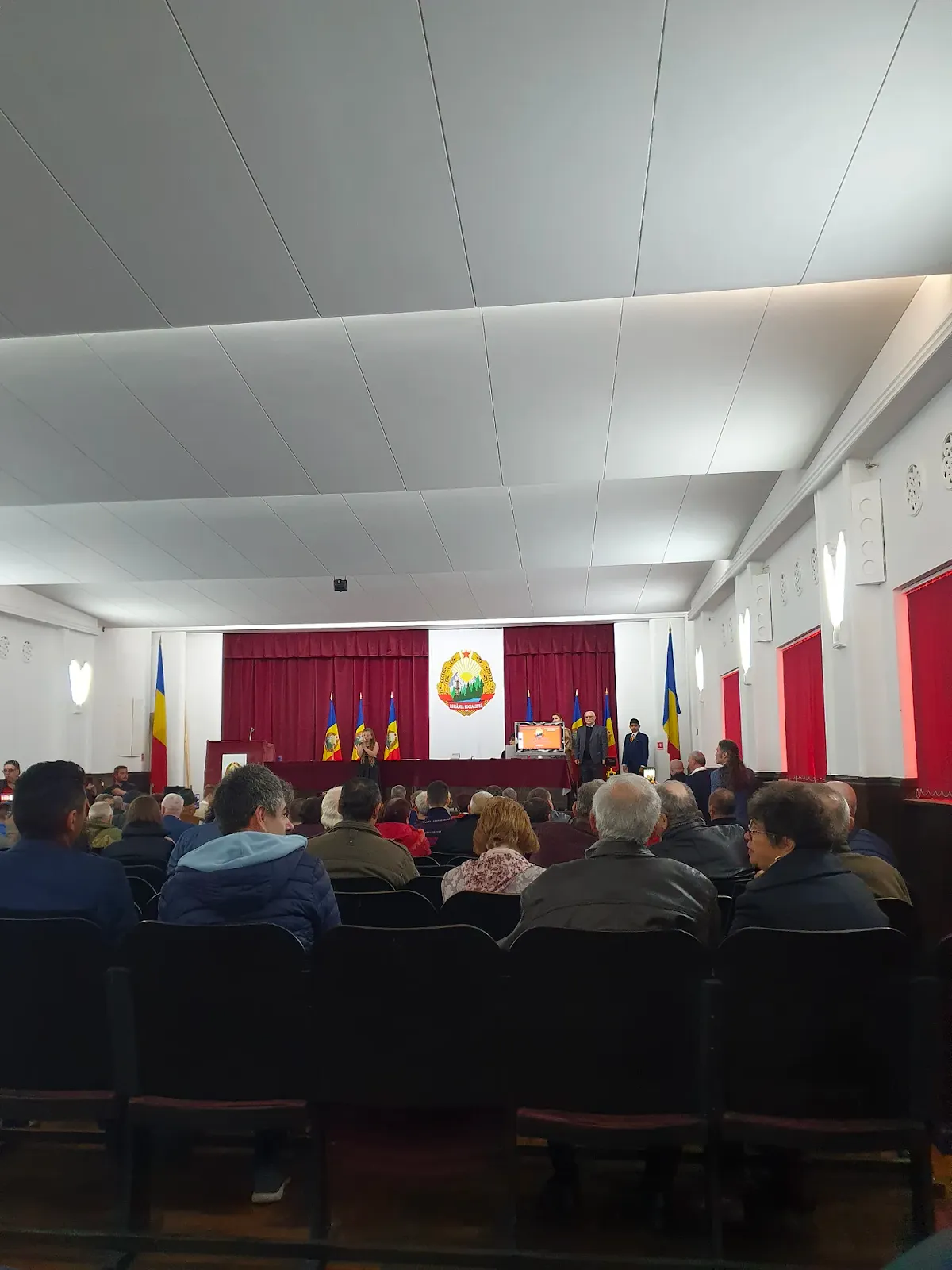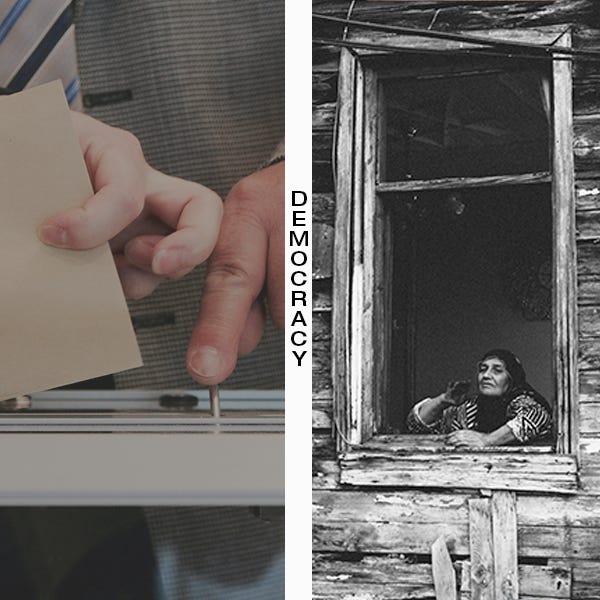This is a contribution written in June 2020 on the base of knowledge and experience of the housing justice movement from Cluj-Napoca, Romania – Căși sociale ACUM!/ Social housing NOW! (https://casisocialeacum.ro/, https://www.facebook.com/CasiSocialeACUM/),1 and on several analysis and documentary films made by its members in the past decade. It was published among the other inputs received by the Special Rapporteur here: https://www.ohchr.org/EN/Issues/Housing/Pages/callCovid19.aspx
The Report is structured in five parts: 1) Introduction – Pata Rât of Cluj-Napoca in the context of Covid-19 pandemic; 2) A general overview of the “residential areas” in Pata Rât; 3) The old and new landfills of Pata Rât; 4) Demands formulated during the pandemic and the insufficient measures taken by the authorities; 5) Conclusions – the need for policies addressing the structural causes of housing deprivation in Pata Rât, including (environmental) racism and housing politics.
-
Introduction – Pata Rât of Cluj-Napoca in the context of Covid-19 pandemic2
A State of Emergency Decree was issued in Romania on the 16th of March 2020 and prolonged for one more month on the 16th of April as a response to the Covid-19 pandemic. The Decree suspended a series of human rights and activated the country’s derogation from the European Convention of Human Rights. But if one has a closer look on the material conditions of people living in overcrowded homes, in marginalized, deprived and stigmatized urban or rural areas under inadequate conditions, such as Pata Rât of Cluj-Napoca, has to recognize that many people never really enjoyed their socio-economic rights and their human dignity was severely attacked.3 Including the right to a decent income and life, or the right to a proper home, or the right to health and living in a healthy environment, or even the right to be respected as a person, as a human being. For them, all the life-saving rules promoted by the government under the Covid-19 pandemic were impossible to respect: stay at home, wash your hands, keep a physical distance – could not save the lives of those without a home, without running water in the house, or of those living in overcrowded homes and areas. It rather meant another occasion in which they could be blamed by racist voices of not being able to respect these obligations due to their supposedly innate character or culture. And even more, the pandemic was another instance when impoverished Roma could be harassed and punished by the racist practices of the policing state under the pretext of safeguarding people’s health.
People already impoverished by low incomes and labor exploitation, and by underdeveloped public services, suffer most from the effects of Covid-19 and the economic crisis today, nevertheless, their deprived housing condition was not created by the current crisis, it was only made more visible by it.4 Furthermore, for many people living in marginal areas while performing racialized and underpaid jobs, labor rights as socio-economic rights have long been suspended, or have never been effectively enforced. Decent pay or special protection against toxic conditions is something that is completely lacking for sanitation workers, for example. Together with the right to unionize and defend their interests towards the employers. Changing the Labor Code and the Social Dialogue Act in 2011 meant putting more and more obstacles in the way of establishing a trade union and, in general, the free association was strongly restricted under the austerity government installed after the 2008-2009 financial crisis, which took measures that disadvantaged the workers. The State of Emergency, and since May 15, 2020, the State of Alert, denied altogether their right to strike or to other forms of collective work-related conflicts.5
For deprived and dispossessed people, the return to the pre-pandemic normal is not a solution. Because earning a minimum wage, which in Romania is only half the value of the minimum consumption basket, as so many workers earn, is not normal. Spending more than half of one’s income on housing costs is not normal. Having a public education and health system always disadvantaged by a distribution of the public budget that favors militarization and national security, is not normal.6 Living in an overcrowded home, because not having enough money to afford moving out, is not normal. Taking not one, but several jobs, so that one can survive from one month to the next, after paying rent or a monthly mortgage rate that is as much as the country’s minimum income, is not normal. It is not normal to pay the same percentage of taxes and contributions to the state by the low-incomers as those who earn thousands of euros per month or have fortunes of millions and hundreds of billions of euros. It is not normal that – while promising one’s salvation – the employer, the real estate developer from whom one buys or rents, and the bank that indebts people for life make so much profit on their disadvantage. Yet again, it is not normal that the big property owners, when they are affected by the systemic crises of capitalism, are being precisely the ones who are saved by public money they take advantage of. Just as it is not normal for the labor force to pay for the measures by which the government manages these crises for the benefit of capital.
Post-pandemic normality for the many should mean a new social arrangement including, among others, public investment into public services in all domains, housing, healthcare, education, social protection.
-
A general overview of the “residential areas” in Pata Rât, Cluj-Napoca
Pata Rât is a ghettoized space including the old and new landfills, but as well as the residential areas formed with the contribution of the public authorities of Cluj-Napoca, since in the past three decades they directed several hundreds of evicted people towards this territory and did not have a social housing policy for the support of the most disadvantaged. This marginal, deprived and stigmatized territory provides an inadequate home for the cheap labor force exploited in different industries contributing to the city’s wellbeing, including people working on the landfills and in sanitation companies.7
|
The local public administration is accountable for responding to the housing needs of the Pata Rât inhabitants, and it has to respond to them with a just and non-racist politics of public housing. We call for the support of the United Nations, and of the international community of human rights defenders, policymakers, and donors, to put pressure on the local authorities of Cluj-Napoca to implement concrete measures in the light of such a housing politics. |
Map 1. The Pata Rât area (with four zones) on the map of the city of Cluj:
Cantonului street, Dallas, Noul Pata Rât (new pata Rât), Rampa de Gunoi (landfill)
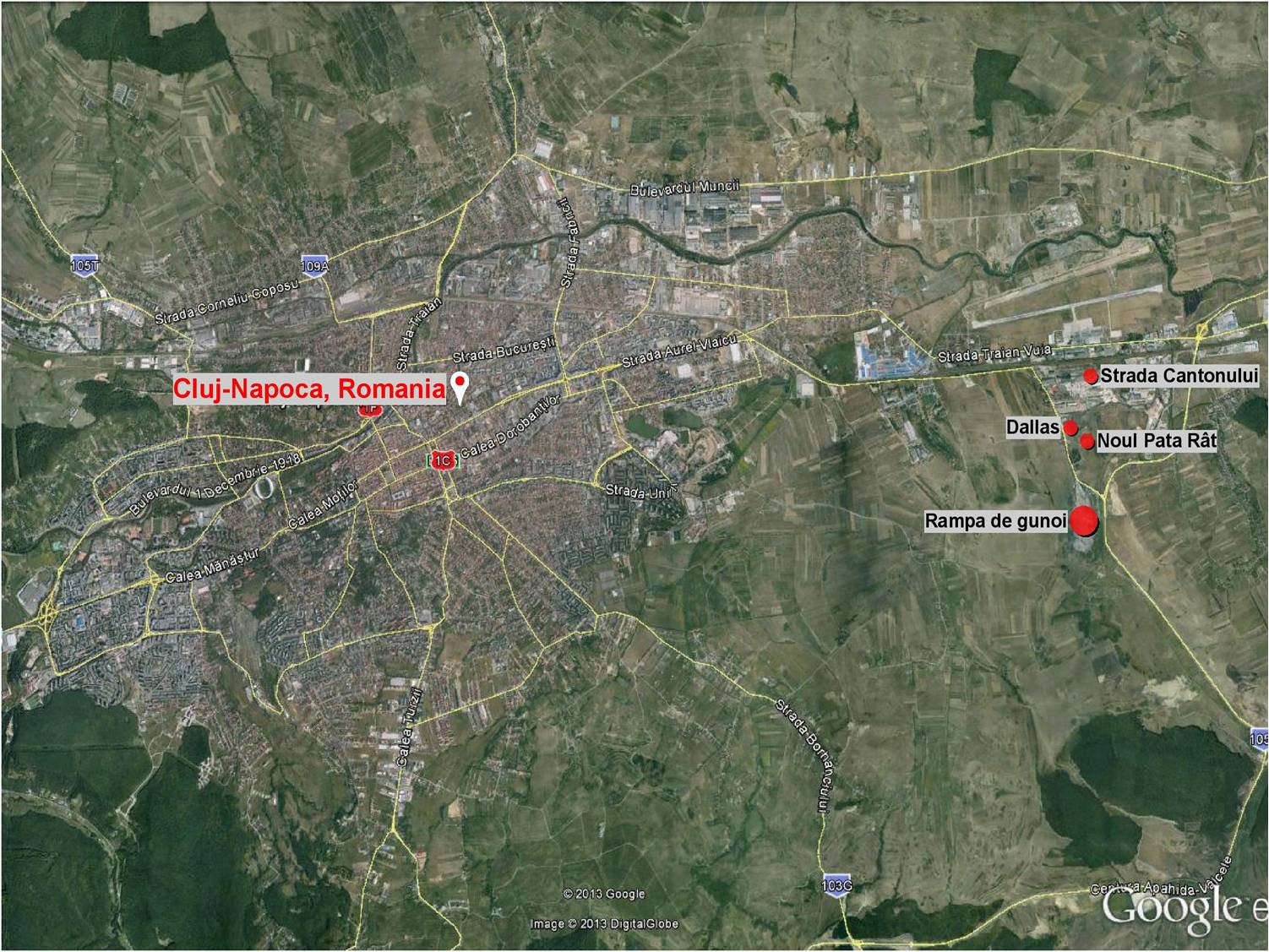
We observe: all the evictions leading to the formation of Pata Rât were forced evictions, i.e. evictions as a result of which evictees were transformed into homeless people – either in the strict sense of the word, i.e., without a roof above their head or in the sense of people who were offered by the authorities some sorts of emergency homes, such as wagons and containers on Cantonului Street or the modular houses built nearby the landfill.
We note: forced evictions leading to the formation of Pata Rât are not part of a remote past, but are a feature of our very present. Evictions from retroceded buildings and lands are continuing. Evictions from degraded buildings belonging to the old state-owned housing stock that the municipality does not want to improve, continue. Evictions from vacant spaces where low-income people create themselves a living space in the absence of alternatives, especially if they are in territories targeted by real estate development, continue. Evictions from social housing due to the failure of paying rent or of public utilities whose cost increased a lot in the past 10 years due to their privatization, also continue.
In all of these cases, the Cluj-Napoca City Hall and Local Council fail to fulfill their obligations defined under the rule of Romania’s social legislation or the expectations of a Social Europe. People remaining homeless, without other housing alternatives, are continuing to look for a home in Pata Rât, even if that is insecure and inadequate. All of these instances and other several tens of thousands of cases of forced eviction happening in Romania that affects hundreds of thousands of persons demonstrate how the Romanian state fails to respect the international treaties that it signed in what regards securing housing for all, and forbidding and preventing evictions.8
After 10 years of the eviction from Coastei street and the forced resettlement of the evictees nearby the landfill in the so-called new Pata Rât or modular houses area (17th December 2010), after 20 years since the Cantonului street colony started to evolve (2000), and after more than a half of century of the existence of the Dallas informal settlement also known as old Pata Rât (the 1960s), we recall the attention of the United Nations towards this fact: the existence of Pata Rât housing area nearby the landfill is a manifestation of racism against the Roma and the poor, and it is an act that not only dehumanizes people day-by-day but also endangers their life.
Today, the Pata Rât area is home to around 1,500 Roma, victims of institutional racism, and development policies that exploit the cheap labor of the most vulnerable while excluding them from the resources of a decent living.
Map 2. Map of the Pata Rât area including Cantonului, modular houses, Dallas, and the landfill
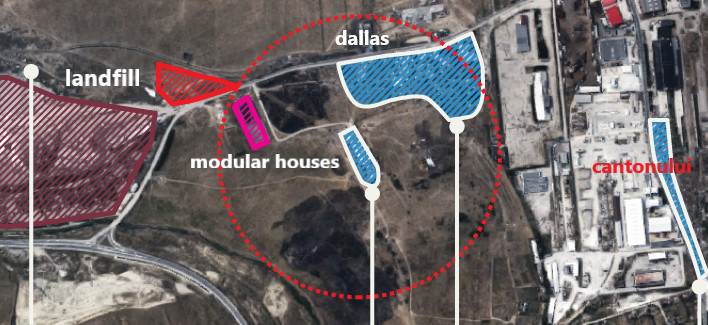
▶In the Dallas colony, where about 300 people live in wooden homes provided to them by the Dutch Pro Roma Foundation, the existing water pipeline is cut off due to debts. On the very the landfills, another 100 persons live in improvised wooden and nylon barracks, without water, electricity, or heating. These people ensured the selection of waste from Cluj on the old garbage dump, and continue doing this on the new so-called temporary, but still non-ecological, landfills (run by the public RADP company and the private firm SALPREST). It is outrageous how the companies of the waste industry get rich from their work while keeping them in a “merciful” dependency and conditions of bare life.9
▶On Cantonului Street, an informal colony growing since the early 2000s, where around 800 people live in about 170 barracks, there are only two commonly shared outdoor pipelines. No one has water in the house, the toilet or the bathroom have never been considered by the authorities to be part of the “temporary” housing arrangements that they allowed to be made available by humanitarian organizations to these people evicted from the city in the past 20 years.10 Some ecological toilets were placed there in 2015, which are very rarely maintained by the company that owns them. It is outrageous how the sanitation workers who clean the city are forced to live in a life-threatening way, day by day, month by month, year by year, decade by decade.
▶At the modular houses hosting 40 households, in one module, four families crammed into 16 sqm rooms share a 4 sqm cold water bathroom. They have been forced to live in the polluting environment of the landfills since December 2010. By then, they were evicted from Coastei street and were provided with these so-called “social homes” constructed by the City Hall in the same year “to solve their housing problems.”11 The city with an annual budget of over 320 million euros affirms that it is powerless in the face of their drama, but the truth is that its leaders do not want to invest in relocating them to the city.
In 2012, UNDP conducted a household survey to substantiate the by-then expected interventions of the City Hall, which showed that most of the inhabitants of Pata Rât are children under 18 (about 550), being followed numerically by adults between 18-44 years (around 460). By then, there were only about 70 people in the community between 45-54 years, 45 people between the ages of 55-64, and only about 10 people over 65. Even though the number of inhabitants has fluctuated in total in the meantime and by areas, these trends have remained valid. The figures show us that there are too few old people in Pata Rât, and this is not because people leave from the area when they are aging, since they have nowhere to go, but this is so because they die at a much younger age than general life expectancy in Romania (75 years) or Cluj County (77 years).
|
To put an end to the decades-long dispossession and deprivation as described briefly above, there is a need at the local, national, and European level for a housing strategy that: ▶allows and facilitates public investments into public housing, ▶enforces the respect of housing as a universal human right by ensuring housing for those who cannot afford a home from the market, ▶makes the fulfillment of the housing needs of low-income people a high priority!12 |
- The old and new landfills of Pata Rât, Cluj-Napoca13
The old garbage dump from Pata Rât has been functioning as a non-ecological landfill from its inceptions, so for about 70 years.14 According to Governmental Decision no. 349/2005, “the non-compliant class B landfill Pata Rât Cluj-Napoca” was to cease its activity on July 16, 2010. In that year, the garbage mountain consisted of 1.9 million cubic meters of waste and occupied an area of 22 hectares. But the storage activity did not stop at this deadline – observed the General Commissariat of the National Environmental Guard in October 2012. To avoid the infringement procedure against Romania for this reason, the municipality found a “temporary solution” for waste storage on a neighboring land (Ziua de Cluj, 07.11.2012).15 After 2 years, in 2012 SC Salprest Rampă (the company administering the old garbage dump) received a fine of 30,000 lei for operating without an environmental authorization (Mediafax, 07.11.2012).16 Nevertheless, this wasteland reopened once again, being permanently closed only in 2015,17 but without the city having even today, in June 2020, an ecological landfill.
Even if the old landfill of Pata Rât was to cease its activity in 2010, the tender for its closure and greening was made only in 2014. Then, the companies winning the tender (SC Nordconforest SA, SC Finara Consult SRL, and SC Interdevelopment SRL) found the existence of an additional quantity of garbage of 541,835 cubic meters compared to the 1.9 million cubic meters existing in 2010. Besides, they estimated the existence of another 367,010 cubic meters of waste on the illegal landfill after July 16, 2010 (CluJust, 28.07.2015).18 The works for closing and greening the old ramp in Pata Rât were started only in 2017. Before its final reception scheduled for January 2020, the president of the Cluj County Council, Alin Tișe, declared that the non-ecological garbage dump in Pata Rât has become history (Ziua de Cluj, 18.12.2019).19 However, he did not mention the so-called “temporary landfills” that starting with 2015 have continued to pollute the area and intoxicate people because the new ecological waste disposal center that should have been operational since 2013 did not open in 2015 either.20 And, as already mentioned above, it is not operational even now, in June 2020.
After the old toxic garbage dump did not close in 2010, the mayor of Cluj-Napoca, prime minister Emil Boc, who in the meantime (in 2012) returned from the national government to the leadership of Cluj-Napoca City Hall, took a new action. In October 2015 he announced: “We have solved the garbage crisis in Cluj. We will have here (in Pata Rât) our own landfill administered by RADP” (Adevărul, 18.10.2015).21 Related to this solution and the “temporary landfills” themselves, in January 2020, the County Committee for Emergency Situations declared a potential state of emergency, thus supporting the request of the President of the County Council, Alin Tișe, to open the ecological CMID (Centre for Integrated Waste Management) without environmental authorization. The Committee’s decision observed: the population in the vicinity of these “temporary” wage deposits is at risk of diseases, with impaired lung function, cardio-respiratory events, acute respiratory infections, exacerbation of chronic diseases, poisoning with ammonia, methane and hydrogen sulfide (Decision No 1 of Cluj County Committee for Emergency Situations, 29.02.2020).
Before these recent declarations, earlier, in September 2017, the Cluj County Committee for Emergency Situations announced that in Pata Rât there is major pollution due to the lake of leachate from the landfills (a quantity of about 6,000 cubic meters extended on an area of 3 hectares); as well as due to the 750 times higher exceedances for ammoniacal nitrogen and 12.8 times for chlorides, so for toxic substances that are very dangerous for the environment and people’s health (Mediafax, 09.09.2017).22 Until 2020, the ecological disaster in Pata Rât continued to be also generated by the fires that broke out both on the old landfill and on the two new temporary garbage dumps, RADP and SALPREST (ex: Monitorul de Cluj, 29.08.2016,23 04.10.2017,24 30.04.2018,25 24.03.201926). The humanitarian and environmental crisis in Pata Rât is also explained by the following fact recognized by the public authorities and the companies running the wastelands: the landfills that received authorization in 2015 to operate as temporary dumps, in May 2020 were filled with waste up to 75% of their total storage capacity (Monitorul de Cluj, 22.05.2020).27
-
Demands formulated during the pandemic and the insufficient measures taken by the authorities
The housing justice movement Căși sociale ACUM!/ Social housing NOW! started to submit letters and petitions regarding the critical situation in Pata Rât towards the local and county authorities28 even before the installment of the state of emergency across the whole Romania, demanding:
▶To take the most urgent actions in the Pata Rât area, including: emergency aid to be given in the form of free medicines and other necessary medical services for people infected with all types of viruses during this period; rapid intervention to place mobile hygiene stations in areas where people do not have water in the house; urgent intervention to remove the waste cumulated in the past several years from the immediate vicinity of homes.
▶To draw up an action plan with concrete measures for the next 24 months to relocate families from Pata Rât to adequate social housing in the city and to provide social and medical assistance services to support them in their efforts to integrate from all points of view in the life of the city.
▶To immediately suspend all the procedures that could lead to the eviction of persons lacking alternative housing, during the entire period of the pandemic, and in the post-pandemic period to implement measures to prevent and legally ban evictions that turn evictees into homeless.
▶To urgently offer proper shelter and in a short time adequate homes to the homeless, including not only the roofless persons but also people living under inadequate conditions and/ or risk of eviction. To provide these, the local government should make use of the regulations regarding the possibility of requisition during the State of Emergency, or even the rules regarding expropriation for objectives of public interest, such as social housing.
▶Simplify and shorten all the procedures by which people can apply for social benefits, social housing, and rent subsidy.
▶Cancel the fines due to the City Hall or offer an exemption from their payment for two years without imposing new increases and penalties.
▶Cancel the penalties imposed on unpaid debts to the municipality, generated from fines, rents, fees, and taxes, or others, and immediately lift the deductions imposed on them.
The concrete measures of the local public authorities taken on the behalf of people from Pata Rât consisted in providing food and a personal hygiene package for a week to 300 families, and in motivating the Intercommunity Development Association of Cluj Metropolitan Area to use funds from its projects to start cleaning up Cantonului street and to place two mobile units with showers in that area, respectively to continue offering food supplies for the Pata Rât inhabitants for 9 more days. Afterward, this support was offered only to those who qualified for a free meal and/ or the so-called guaranteed minimum income (142 lei/ 29 euro per month for a single person, 527 lei/ 109 euro per month for a family of five persons) according to the very severe Romanian system of social protection.
-
Conclusions – the need for policies addressing the structural causes of housing deprivation in Pata Rât, including (environmental) racism and housing politics
The Covid-19 pandemic displayed not only the long-duré critical condition of people living in the Pata Rât area of Cluj-Napoca nearby the landfills but also the fact that the local public authorities do not have the political will to implement policy measures acting against the structural causes of the formation and continuous reproduction of the insecure and inadequate housing arrangements in that territory. Therefore, the latter continues to endanger both people’s life and human dignity. Viewed in the larger context of the government’s emergent plan for economic recovery from the current crisis, the case of multiple and cumulated deprivations in Pata Rât has even fewer chances to be properly treated. The foreseen Romanian governmental measures focus on offering state aid to the companies and neglect the further pauperization of more than 60% of the population.29 Moreover, the continuous existence of the toxic landfills in the area remains a factor that makes people’s life chances to have nothing but a dark perspective ahead.
In the front of such a deep and long-duré crisis, the project-based interventions using EU or other types of funds that rehouse like 10% of the Pata Rât inhabitants (their majority outside of the city) cannot solve the problem. They have huge budgets out of which a large amount goes for covering the costs with the project teams, while the number of people in need for housing is reproduced at least trans-generationally.30 At the most, these projects might have a small contribution to solving the problem. Nevertheless, this could only happen if the municipality would assume politically and sustain financially a short-, medium- and long-term plan of providing public housing at least for persons and families from the city with low income and long histories of housing deprivation and evictions, such as people from Pata Rât. But, till now, the municipality have not shown such intentions.
Therefore, we are addressing this cautionary report about the environmental, humanitarian and housing crisis from Pata Rât aggravated by the pandemic and the ongoing economic recession, to call for support from the United Nations in implementing the following measures:
▶People have to be urgently rehoused from the polluted, marginalized and stigmatized area of Pata Rât into proper social homes from the city, which would assure that now and in future, they will be protected against any other similar threats.
▶Proper social measures and a decent guaranteed minimum income should complete this desired housing intervention to ensure its sustainability.
▶Further actions would be also needed to legally ban and always prevent evictions that could leave people without adequate alternative housing.
|
All the necessary measures targeting people living nowadays in Pata Rât should be conceived as part of a larger local and national housing politics that could produce a proper stock of public housing put under the democratic control of the tenants.31 Only such a politics might function as a means of assuring the right to housing as a universal right while prioritizing the access to adequate and financially affordable housing and utilities of the low-income and most deprived people. |
The document was elaborated on the behalf of the Cluj-based housing justice movement Căși sociale ACUM!/ Social housing NOW! by:
▶Linda Greta, former resident of modular houses, member of the Community Association of Roma from Coastei
▶Maria Stoica, resident of Cantonului street
▶Enikő Vincze, professor at Babeș-Bolyai University
18.06.2020, Cluj-Napoca, Romania
Photo: A 2013 protest in Pata Rât, which asked for its inhabitants to be moved away from the zone (source: Adrian Nemeti)
The Barricade is an independent platform, which is supported financially by its readers. Become one of them! If you have enjoyed reading this article, support The Barricade’s existence! We need you! See how you can help – here!








